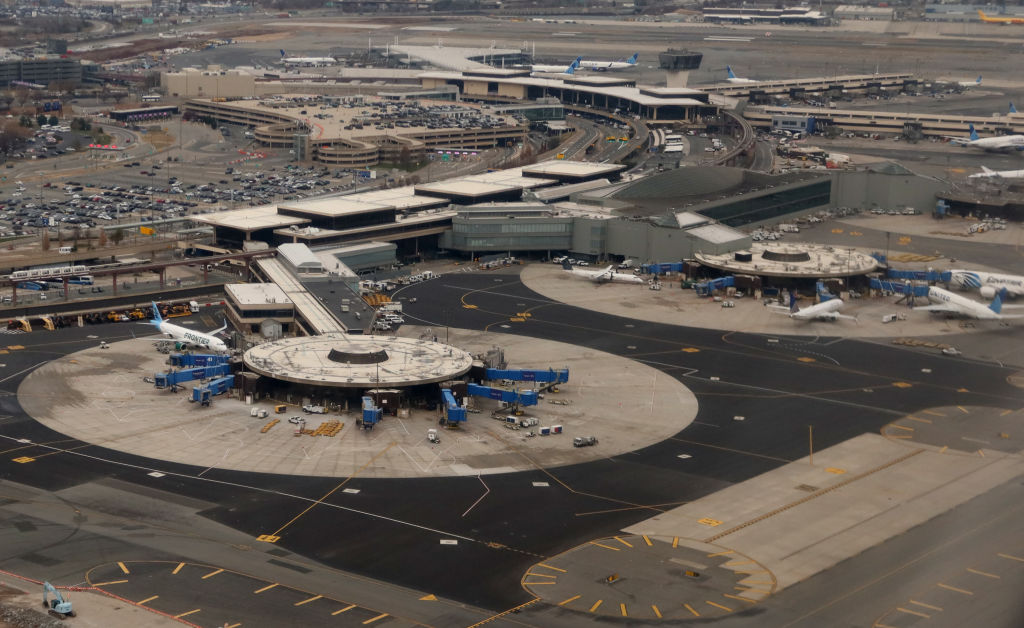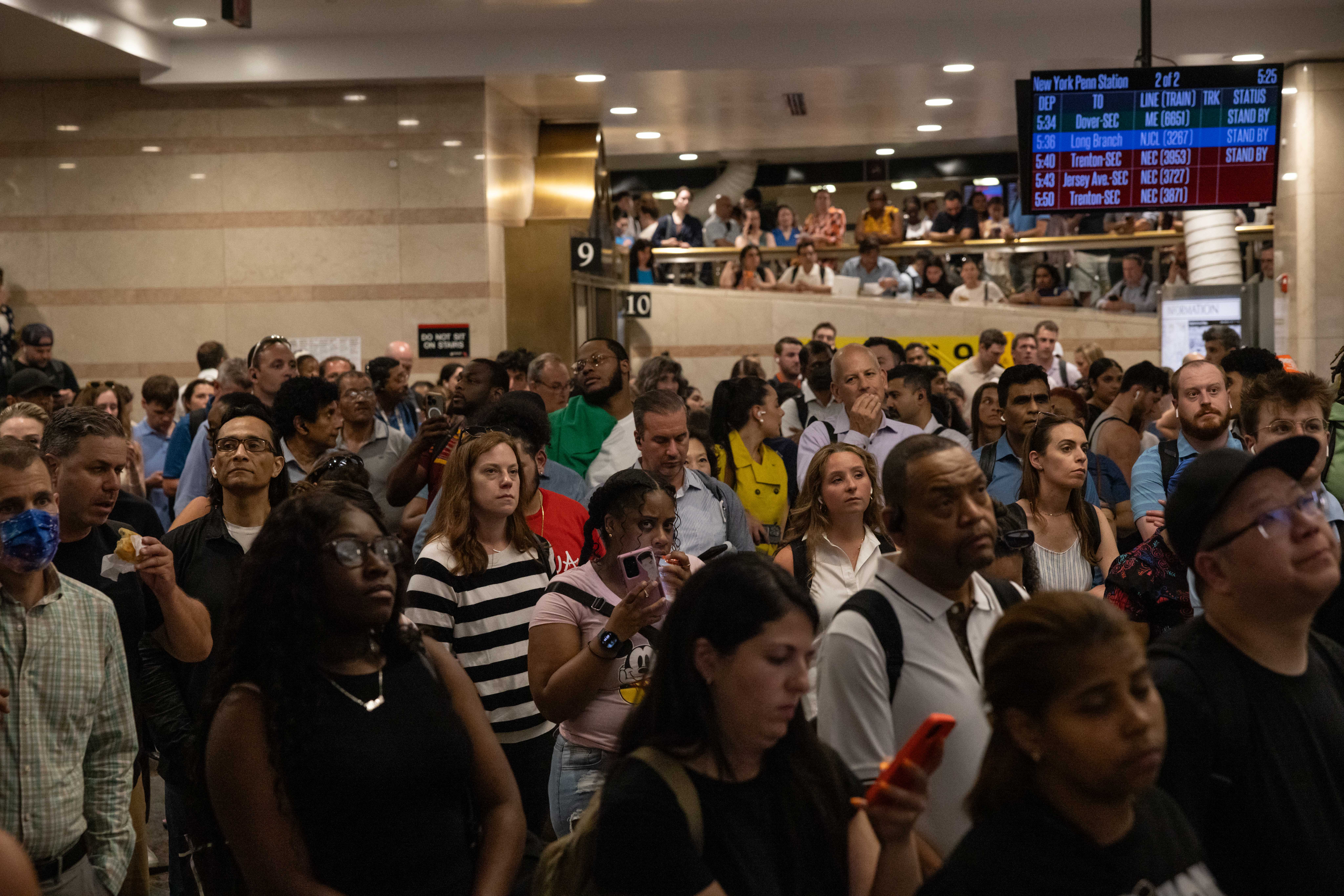Newark Airport Delays: Share Your Frustration & Rights!
Newark Airport Nightmare? Share Your Delay Story!
Introduction: Grounded Hopes at EWR
Picture this: You're buzzing with excitement, ready for that long-awaited vacation, crucial business meeting, or maybe just a heartwarming reunion with loved ones. You arrive at Newark Liberty International Airport (EWR), anticipation building with every step. But then, reality hits harder than a delayed baggage carousel. Flights are grounded, chaos reigns, and your meticulously planned itinerary is thrown into disarray thanks to FAA staffing shortages. Has this happened to you? You're not alone.
On a recent Thursday, many passengers faced significant disruptions at Newark Airport. FAA staffing shortages led to departing flights being delayed by an average of 75 minutes, while arriving flights were facing staggering delays of up to five hours! The maximum delay even threatened to stretch to a grueling 10 hours. It's a traveler's worst nightmare come true. Were you one of those caught in the Newark Airport crossfire? We want to hear your story.
The FAA Shortage Saga: What Happened?
The FAA reported a ground delay program at Newark Airport shortly after 11 a.m. Although an earlier ground stop was averted, the impact was still substantial. Imagine the domino effect – one flight delayed triggers a chain reaction, impacting subsequent departures and arrivals, creating a ripple of frustration and disruption. But why were these shortages happening in the first place? What factors contributed to this aviation bottleneck? These are questions many passengers are undoubtedly asking themselves.
Understanding Ground Delays and Ground Stops
Let's break down some of the jargon. A "ground stop" is like a red light for flights destined for a particular airport, preventing them from taking off at their origin. A "ground delay program" is a slightly less restrictive measure, allowing flights to depart but with significant delays, effectively managing the flow of traffic into the affected airport. Both aim to prevent overcrowding in the air and on the ground, but they come at the cost of passenger convenience and time.
Departure Delays vs. Arrival Delays: A Tale of Two Timelines
The impact wasn't uniform. While departure delays were largely resolved by the evening, with flights leaving relatively on time, arriving flights painted a different picture. The average arrival delay remained around five hours, and unfortunately, that was projected to continue throughout the night. This discrepancy highlights the complexities of air traffic management and how delays can cascade through the system.
Share Your Story: Be Heard!
Have you been directly impacted by these delays? Did you miss a connecting flight? Were you forced to cancel important plans? Did the delays cost you money, opportunities, or precious time with loved ones? We want to hear your account! Your experiences can shed light on the real-world consequences of these delays and potentially influence future improvements. Your voice matters!
The Ripple Effect: Beyond the Airport
The impact of flight delays extends far beyond the airport terminal. Consider the missed business meetings, the canceled family vacations, the financial losses incurred due to unexpected expenses. These delays are more than just inconveniences; they can have significant personal and professional consequences. Have you experienced any of these ripple effects? We're here to listen.
Documenting the Experience: What Did You See?
What was the atmosphere like at the airport? Were passengers calm, frustrated, or a mix of both? Were airport staff helpful and informative, or were they overwhelmed and unable to provide adequate assistance? Details like these can paint a vivid picture of the situation and help us understand the human impact of the delays.
The Financial Toll: Did You Incur Extra Expenses?
Did you have to pay for unexpected hotel stays, meals, or transportation due to the delays? Did you lose income as a result of missing work or business opportunities? Quantifying the financial impact can help illustrate the true cost of these disruptions. Did you try to seek compensation for these expenses?
The Emotional Impact: Stress, Anxiety, and More
Beyond the financial burden, flight delays can take a heavy toll on our emotional well-being. The stress of uncertainty, the anxiety of missing connections, and the frustration of feeling helpless can all contribute to a negative travel experience. Did you experience any emotional distress as a result of the delays?
Connecting Flights: A Risky Game in a Delayed World
Connecting flights are always a gamble, but in a world of frequent delays, they become even more precarious. Did you miss a connecting flight due to the Newark delays? Did you have to scramble to rebook your travel arrangements? Sharing your experiences can help others prepare for the possibility of missed connections.
The Communication Breakdown: Were You Kept Informed?
Was the airline forthcoming with information about the delays? Were you provided with regular updates and clear explanations? Or were you left in the dark, struggling to figure out what was happening? Effective communication is crucial in managing passenger expectations during disruptions.
The Role of the FAA: What Can Be Done?
FAA staffing shortages are a complex issue, but it's important to explore potential solutions. What steps can be taken to prevent similar disruptions in the future? Should the FAA invest more in recruitment and training? Should airlines adjust their schedules to account for potential delays? These are important questions to consider.
The Future of Air Travel: Avoiding Repeat Performances
Ultimately, the goal is to minimize disruptions and ensure a smoother travel experience for everyone. By understanding the causes of delays and implementing effective solutions, we can work towards a future where flight delays are the exception, not the rule. Innovation and investment in air traffic control technology are crucial to the future.
Seeking Compensation: What Are Your Rights?
Did you attempt to seek compensation from the airline for the delays? Were you successful? Understanding your rights as a passenger is essential in navigating these situations. Familiarize yourself with airline policies and passenger rights regulations to ensure you receive the compensation you deserve. Did the airline offer you any vouchers or other compensation?
Lessons Learned: Tips for Future Travel
Based on your experience, what advice would you give to other travelers flying through Newark Airport? What precautions can they take to minimize the impact of potential delays? Sharing your insights can help others prepare for the unexpected and navigate the challenges of air travel.
Conclusion: Your Stories Matter
The Newark Airport delays serve as a stark reminder of the challenges facing the aviation industry. By sharing your experiences, you can contribute to a better understanding of these challenges and help shape future solutions. Your voice matters! Your story matters! Thank you for sharing your insights.
Frequently Asked Questions (FAQs)
Here are some frequently asked questions related to flight delays and passenger rights:
- What are my rights if my flight is delayed for several hours?
Your rights vary depending on the airline and the cause of the delay. Generally, airlines are obligated to provide meals, accommodation (if overnight), and rebooking options. Some regulations, like those in the EU, offer cash compensation for significant delays.
- How can I claim compensation for a delayed flight?
Start by contacting the airline's customer service department and filing a formal complaint. Document all expenses incurred due to the delay and gather any supporting evidence, such as boarding passes and receipts. If the airline denies your claim, you may consider contacting the relevant consumer protection agency.
- What is the difference between a ground stop and a ground delay?
A ground stop completely halts flights destined for an airport, preventing them from taking off. A ground delay program allows flights to depart but with significant delays, managing the flow of traffic into the affected airport.
- How can I minimize the risk of missing a connecting flight due to delays?
Consider booking flights with longer layovers, especially during peak travel times or when flying through airports prone to delays. Also, consider flying non-stop if possible. Monitor your flight status regularly and be prepared to make alternative arrangements if necessary.
- Are airlines responsible for delays caused by FAA staffing shortages?
Airlines typically aren't held liable for delays caused by external factors like FAA staffing shortages, as these are considered beyond their control. However, they are still obligated to provide support to passengers, such as rebooking options and assistance with accommodation.

